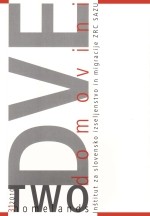Continuity and Change in Festive Food Practices among Muslims in Urban Burkina Faso
Keywords:
food, wedding, tradition, modernity, Burkina FasoAbstract
The article compares traditional and civil wedding celebrations among Muslims in urban Burkina Faso. It analyses the types of food served at the two events and compares their meaning. Traditional African food is served at the traditional wedding celebration, while at the civil ceremony “white man’s foods” are served to reflect the modern way of living and thinking. Drawing on these two ceremonial forms and two types of food consumption, the article discusses the ongoing discourse of “traditional” versus “modern” in urban Burkina Faso.
Downloads
References
Argyrou, Vassos (1996). Tradition and Modernity in the Mediterranean: The Wedding as a Symbolic Struggle. Cambridge: Cambridge University Press.
Bourdieu, Pierre (1979/1996). Distinction: A Social Critique of the Judgement of Taste. London: Routledge in Kegan and Paul.
Brand, Saskia (2001). Mediating Means and Fate: A Sociopolitical Analysis of Fertility and Demographic Change in Bamako, Mali. Leiden: Brill.
Caldwell, Melissa L. (2005). Domesticating the French Fry: McDonald’s and Consumerism in Moscow. The Cultural Politics of Food and Eating: A Reader (ur. James Watson in Melissa Caldwell). Malden in Oxford: Blackwell Publishing, 180–196.
Debevec, Liza (2004a). Family Meals, Sharing and Hierarchy in a West African Town. The Proceedings of the 2003 Oxford Symposium on Food and Cookery (ur. Richard Hosking). Bristol: Footwork Press, 66–77.
Debevec, Liza (2004b). V Afriki nihče ne jé sam, ali pač?: Hierarhija v prehranjevanju burkinske družine. Emzin 14(3/4): 73–76.
Debevec, Liza (2005a). Through the food lens: The politics of everyday life in urban Burkina Faso. Neobjavljena doktorska disertacija. St Andrews: University of St Andrews.
Debevec, Liza (2005b). Ženske in tradicionalne in civilne poročne prakse v Burkina Fasu. Azijske in afriške študije 9: 65–77.
Debevec, Liza (2007). Z Maggi kocko do dvojno dobrega okusa: Spremembe in kontinuiteta v vsakdanji prehrani v urbanem Burkina Fasu. Glasnik slovenskega etnološkega društva 47(3–4): 12–16.
Debevec, Liza (2009). Islam in vsakdanje življenje mladih moških v urbanem Burkina Fasu. Historični seminar 7 (ur. Katarina Šter in Mojca Žagar). Ljubljana: Založba ZRC, 61–75.
Fortes, Meyer in Sonia Fortes (1936). Food in the Domestic Economy of the Tallensi. Africa 9: 237–276.
Gillette, Maris Boyd (2005). Children’s Food and Islamic Dietary Restrictions in Xi’an. The Cultural Politics of Food and Eating: A Reader (ur. James Watson in Melissa Caldwell). Malden in Oxford: Blackwell Publishing, 106–121.
Goody, Jack (1982). Cooking, Cuisine and Class: A Study in Comparative Sociology. Cambridge: Cambridge University Press.
Hagberg, Sten (2002). Learning to Live or to Leave: Education and Identity in Burkina Faso. African Sociological Review 6(2): 28–46.
Hansen, Karen Trandberg (1999). The Cook, his Wife, the Madam and their Dinner: Cooking, Gender and Class in Zambia. Changing Food Habits: Case Studies from Africa, South America and Europe (ur. Carola Lentz). Amsterdam: Harwood Academic Publishers, 73–89.
Richards, Audrey (1939). Land, Labour and Diet in Northern Rhodes. Oxford: Oxford University Press.
Roth, Claudia (1996). La séparation des sexes chez les Zara de Burkina Faso. Paris: L’Harmattan.
Spittler, Gerd (1999). In Praise of the Simple Meal. African and European Food Compared. Changing Food Habits: Case Studies from Africa, South America and Europe (ur. Carola Lentz). Amsterdam: Harwood Academic Publishers, 27–42.
Tivadar, Blanka in Breda Luthar (2005). Food, ethics and aesthetics. Appetite 44(2): 215–233.
Yan, Yunxiang (2005). Of Hamburger and Social Space: Consuming McDonald’s in Beijing. The Cultural Politics of Food and Eating: A Reader (ur. James Watson in Melissa Caldwell). Malden in Oxford: Blackwell Publishing, 80–103.
Downloads
Published
How to Cite
Issue
Section
License

This work is licensed under a Creative Commons Attribution-NonCommercial-NoDerivatives 4.0 International License.
Authors guarantee that the work is their own original creation and does not infringe any statutory or common-law copyright or any proprietary right of any third party. In case of claims by third parties, authors commit their self to defend the interests of the publisher, and shall cover any potential costs.
More in: Submission chapter





